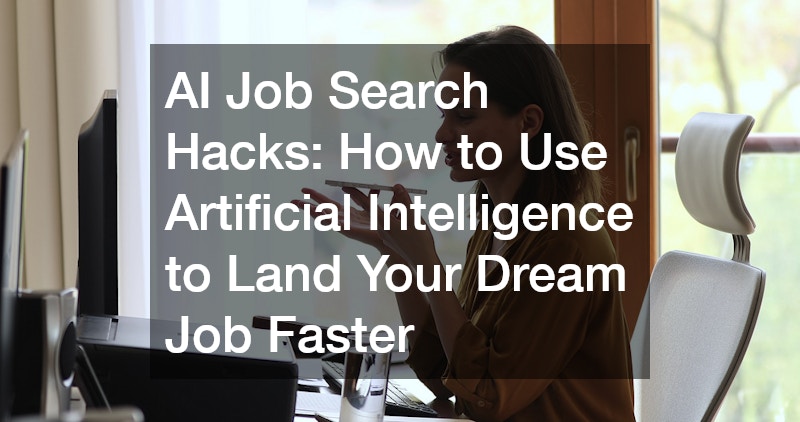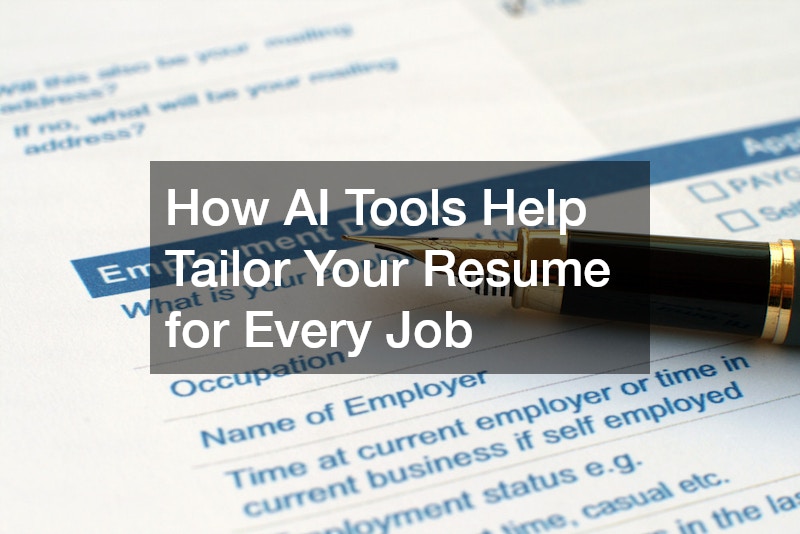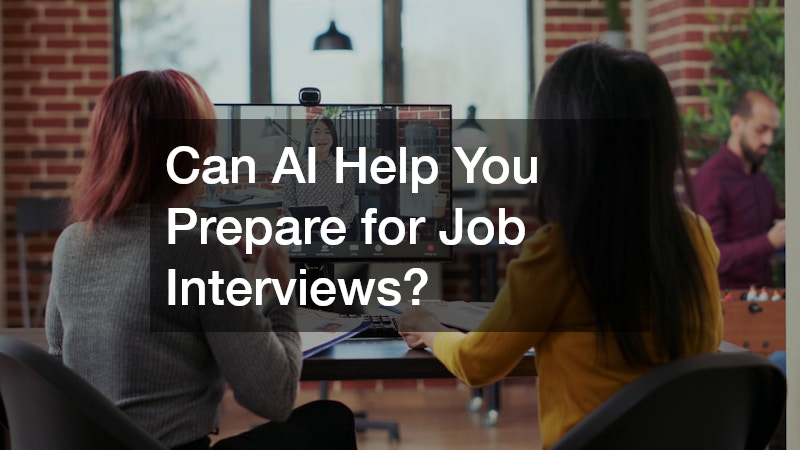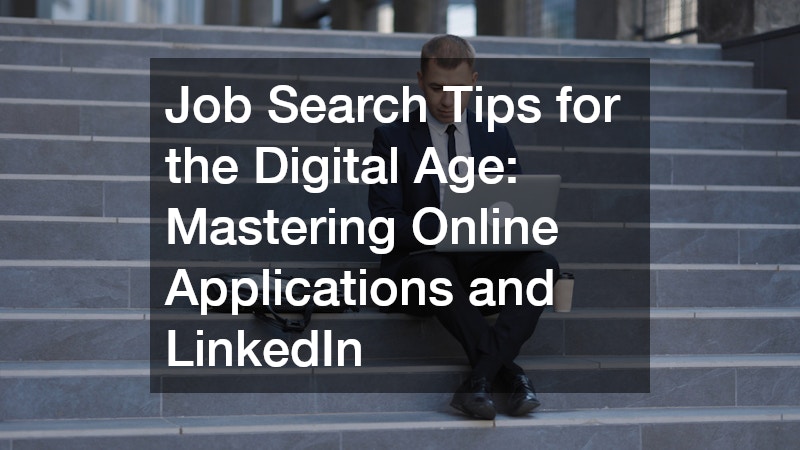
Finding the perfect job in today’s fast-paced, competitive job market can be overwhelming. Resumes must be tailored, cover letters crafted, LinkedIn profiles polished, and hundreds of job postings sifted through. But thanks to artificial intelligence (AI), job seekers now have tools at their fingertips that can streamline this process and give them a real edge.
From smart resume builders to AI-powered job boards, chatbots, and predictive analytics, AI can cut through the noise and help you find roles that match your skills, goals, and even personality. But the key lies in knowing how to use these tools effectively. In this article, we’ll uncover practical AI job search hacks that can help you land your dream job faster, without burning out or missing key opportunities.
Whether you’re actively applying or passively browsing, these strategies will help you master the new era of job hunting. Let’s dive in.
What Is an AI Job Search and Why Should You Care?
AI job search refers to the use of artificial intelligence tools and platforms that assist job seekers in finding, applying for, and preparing for job opportunities. Unlike traditional job searches that rely solely on human effort and judgment, AI tools can analyze vast amounts of data, automate repetitive tasks, and personalize the job-hunting experience.
Why AI Job Search Is Worth Your Attention:
- Time-Saving: Automate resume tailoring and job application tracking.
- Smart Matching: Find job opportunities that match your profile better.
- Insights: Learn how to improve your resume or LinkedIn presence based on AI feedback.
- Leveling the Playing Field: Reduce bias by relying on data and keywords, not just gut feelings.
By embracing AI tools, you can work smarter, not harder, during your job search.
How AI Tools Help Tailor Your Resume for Every Job
One of the most tedious parts of job hunting is customizing your resume for every role. AI can make this easier, more effective, and faster.
Tools That Help:
- Rezi: Creates ATS-friendly resumes with AI-generated bullet points.
- Jobscan: Compares your resume to job descriptions and recommends keyword improvements.
- Zety and Enhancv: Offer AI resume builders that suggest phrasing and layout.
AI Resume Hacks:
- Use AI to analyze job descriptions and insert the right industry keywords.
- Ask ChatGPT or other AI tools to reword bullet points for clarity and impact.
- Upload your resume to an ATS scanner simulator to see how it ranks for a given job.
You’ll not only save time but also increase your chances of making it past resume screeners.
Can AI Really Help You Write a Great Cover Letter?
Yes, and here’s how. Cover letters still matter—especially when they’re customized. Fortunately, AI can handle the heavy lifting.
How to Use AI for Cover Letters:
- Provide AI with the job description and your resume highlights.
- Let it draft a first version, then personalize it with your voice and story.
- Use tools like CoverDoc.ai or ChatGPT to craft multiple versions in seconds.
Tip: Don’t just copy and paste. Use the AI output as a springboard and infuse your unique voice. Recruiters will appreciate the blend of efficiency and authenticity.
Where to Find AI-Powered Job Boards That Work Smarter
Standard job boards like Indeed and Monster are still useful, but new AI-powered platforms take personalization to the next level.
AI Job Boards Worth Exploring:
- Hired: Matches tech candidates with employers based on detailed profiles.
- ZipRecruiter: Uses AI to suggest jobs and learns from your interactions.
- Talentprise: AI matches job seekers with companies based on cognitive and behavioral assessments.
- Teal HQ: Tracks applications and recommends next steps using AI.
These platforms go beyond keyword searches. They learn your preferences, flag the best opportunities, and reduce spam listings—helping you focus your energy where it counts.
How to Use ChatGPT for Your Job Search
ChatGPT, OpenAI’s natural language tool, is a job seeker’s secret weapon. It can help with everything from resume writing to interview prep.
Smart Prompts for Job Seekers:
- “Summarize my experience for a project manager resume.”
- “Write a cold email to a recruiter at [company].”
- “What questions should I ask during a product design interview?”
- “Analyze this job description and suggest keywords for my resume.”
You can even simulate interview questions and rehearse answers. ChatGPT won’t just give you copy-paste material—it can help you think strategically about how you present yourself.
How to Automate Your Job Search Workflow with AI
Job hunting takes consistent effort. AI can help automate parts of the workflow so you don’t feel like you’re juggling too many balls at once.
Use These Tools to Stay Organized:
- Teal HQ: Tracks your applications and deadlines.
- Notion AI: Builds a job search dashboard with summaries and to-dos.
- IFTTT/Zapier: Set up alerts for job posts and company updates.
- Google Alerts: Track mentions of your target companies or roles.
Automating these systems reduces mental load and helps you stay consistent, even when motivation dips.
How to Optimize Your LinkedIn Profile with AI
Your LinkedIn profile is your public resume, and it’s often the first thing recruiters see.
AI Tools to Optimize LinkedIn:
- ResumAI by Wonsulting: Enhances profile sections with SEO-friendly language.
- Crystal Knows: Analyzes LinkedIn profiles to tailor messaging and tone.
- ChatGPT: Use it to rewrite your headline, summary, or job entries based on your goals.
Don’t Forget:
- Include strategic keywords from your target roles.
- Use AI to draft personalized connection requests.
- Ask AI to create content ideas to post regularly and stay visible.
When optimized, your LinkedIn profile becomes a lead-generating tool for job offers.
Common Mistakes to Avoid When Using AI in Your Job Search
While AI tools can help tremendously, they’re not foolproof. Misusing them can actually hurt your chances.
Pitfalls to Watch Out For:
- Over-reliance: AI should enhance your process, not replace your judgment.
- Generic output: Unedited AI responses can come off as bland or robotic.
- Keyword stuffing: Cramming your resume with buzzwords without context can backfire.
- Privacy concerns: Be cautious about uploading sensitive personal information to unverified platforms.
Pro tip: Always review and refine what AI gives you. Recruiters want to see you, not just AI-generated fluff.
AI Job Search Hacks to Fast-Track Your Dream Role
Now that you’ve seen how powerful AI can be in the job hunt, here’s a summary of quick hacks to implement today:
10 AI Job Search Hacks:
- Use Jobscan to optimize every resume.
- Generate personalized cover letters with ChatGPT.
- Automate your application tracker using Teal HQ.
- Let Hired match you with tech jobs.
- Ask ChatGPT to rewrite your LinkedIn profile.
- Use Crystal Knows to tailor outreach messages.
- Create Google Alerts for job postings or target companies.
- Practice mock interviews with AI chat tools.
- Set up reminders and checklists with Notion AI.
- Use AI-powered resume builders like Rezi or Enhancv.
These strategies, when combined with your dedication and creativity, will give you a head start in landing the job you deserve.
How Recruiters Use AI – And What That Means for You
Understanding how recruiters use AI in hiring can give you a major advantage. Many companies today rely on Applicant Tracking Systems (ATS) and AI-driven recruitment platforms to scan, filter, and rank candidates before a human even sees your resume. These systems look for specific keywords, qualifications, and formats. If your application isn’t AI-friendly, it might get skipped altogether.
Recruiters also use AI tools like HireVue, which evaluates video interviews for tone, speech patterns, and confidence levels. Knowing this, job seekers should focus on clear communication, positive body language, and concise responses during video interviews. Additionally, platforms like LinkedIn Recruiter suggest candidates to hiring managers based on profile strength and relevance—another reason why optimizing your profile is critical.
By learning how recruiters use AI, you can better position yourself as the ideal candidate from the moment you apply.
Can AI Help You Prepare for Job Interviews?
Absolutely—and it’s one of the most underutilized AI job search hacks. Job interviews can be nerve-wracking, especially when you don’t know what questions to expect or how to tailor your answers. AI tools like Interview Warmup by Google, Vervoe, or even ChatGPT can simulate interview questions based on your industry and job title. These tools analyze your responses and give feedback on clarity, tone, and relevance.
You can also ask AI to generate STAR-format answers (Situation, Task, Action, Result) based on your past job experience. Practicing aloud and receiving instant feedback not only improves your confidence but also sharpens your storytelling skills.
With regular practice using AI simulations, you’ll learn to handle behavioral and technical questions more fluently, boosting your performance in real interviews.
Final Thoughts: AI Is a Tool—You Are the Strategy
Artificial intelligence is revolutionizing the way we search and apply for jobs, but it’s only as effective as the person using it. While these tools can fast-track your search and reduce overwhelm, the real magic happens when you combine AI efficiency with human authenticity.
Use AI to automate, analyze, and amplify your efforts—but bring your own story, passion, and drive to the table. That’s what ultimately makes the difference between a good job offer and a dream job offer.
So go ahead—embrace AI in your job search. Just make sure it’s working for you, not the other way around.



